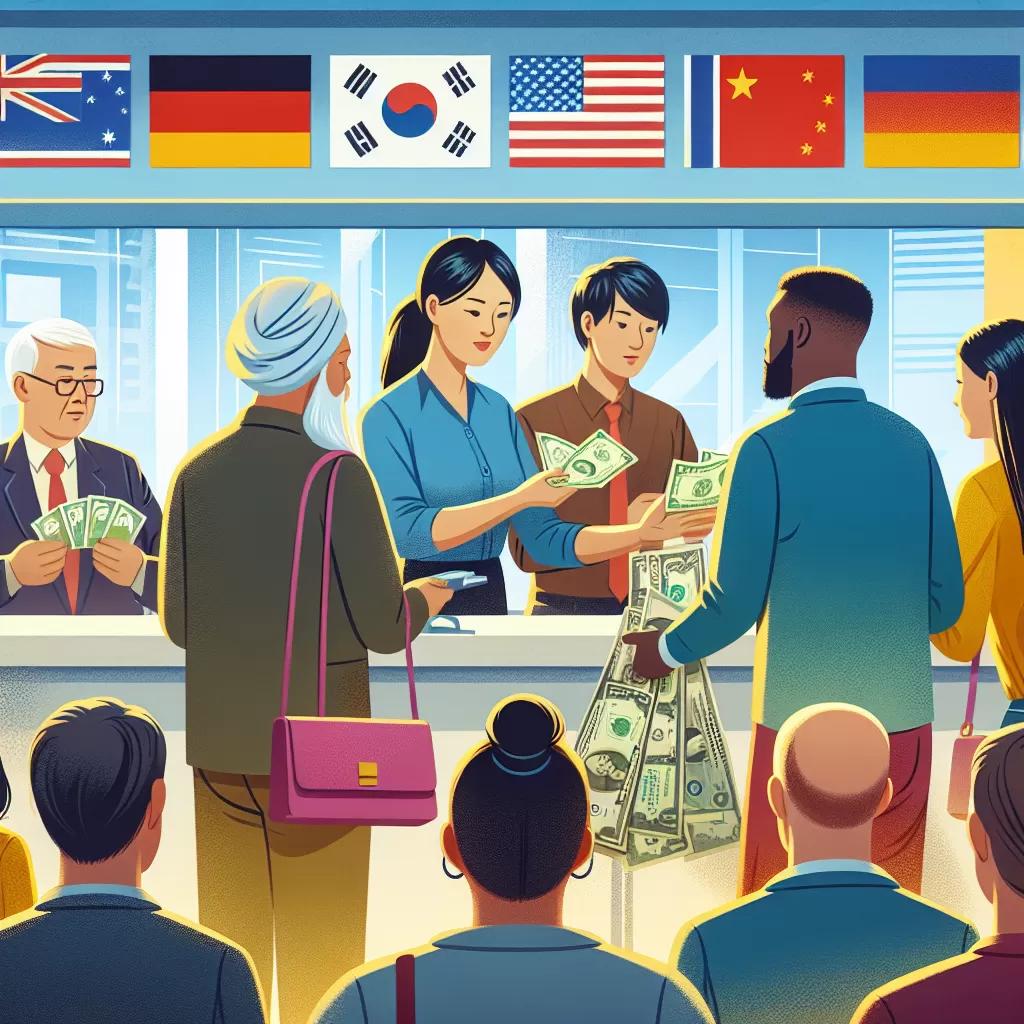Who Can Exchange Currency
Follow Currency Mart April 10, 2024
Where to purchase Foreign Currencies?

Introduction
The realm of currency exchange is an ever-changing landscape in which dollars, pounds, yen, and euros constantly fluctuate in value. Whether you’re a seasoned business traveler, a novice tourist or an international student, understanding who can exchange currency can give you an edge in navigation in terms of saving unnecessary expenses.Banks
Most people associate currency exchange with banks. They are the traditional guardians of gold, often offering the exchange to customers and non-customers alike. Banks exchange an array of different currencies, making them an excellent choice for people seeking less common foreign currencies. Note that while banks give the assurance of reliability and safety, their exchange rates may be less competitive than other options. Their services may also come with additional processing or service fees.Currency Exchange Bureaus
Currency exchange bureaus, like the popular Travelex or Interchange, are another option for currency conversion. These agencies are generally found in major cities, airports, shopping malls, and tourist areas. They offer fast, convenient service, often supporting multiples currencies. Beware of their service fees and commission charges which can sometimes be masked within their exchange rates, leading to an overall costlier exchange.Online Currency Exchanges
Modern solutions like online currency exchanges have revolutionized the traditional methods. They provide the convenience of exchanging currency right from your device, usually at competitive rates. Companies like TransferWise, Revolut, or XE trade offer excellent online exchange services. They typically provide better exchange rates than traditional banks and have transparent fee structures.Peer-to-Peer (P2P) Exchange Platforms
Emerging technological advancements have given rise to Peer-to-Peer exchange platforms. Instead of going through a traditional exchange process, users match with others looking to exchange the opposite pair of currencies. This method can often avoid exchange fees, providing a cost-effective solution. Mobile apps like WeSwap facilitate such services.ATMs
ATMs, found all over the world, can provide currency exchange too. If you’re traveling internationally, you can draw the local currency from an ATM with your bank card. Keep in mind that this comes with foreign transaction fees and the exchange rates may also vary depending on your bank’s agreement with the local banks. Confirm your bank's foreign transaction fees and local partner banks before choosing this option.Prepaid Travel Cards
Prepaid travel cards, like those offered by Visa or Mastercard, allow you to load multiple currencies onto a single card. These cards provide a safer alternative to traveling with large amounts of cash and can be easily replaced if lost or stolen. They're a great option for those who plan by setting up budgets as they allow you to lock-in exchange rates.Credit Cards
Credit card companies offer another reliable way to exchange currency. Many cards come with no foreign transaction fees, and their network allows for currency conversion at competitive rates. Keep in mind that some credit cards might charge fees for foreign transactions, so it's best to verify this before making a choice.Conclusion
The modern world offers a myriad of ways to exchange currency. Your best option depends on your specific needs, the currencies in question, and your personal comfort level. As the Guardian of currency exchange, I recommend researching the fees, availability, and market exchange rates of all these options before making a decision.
Where to purchase Foreign Currencies?